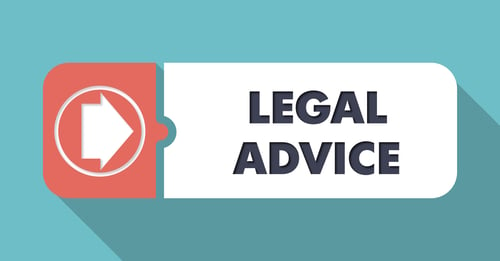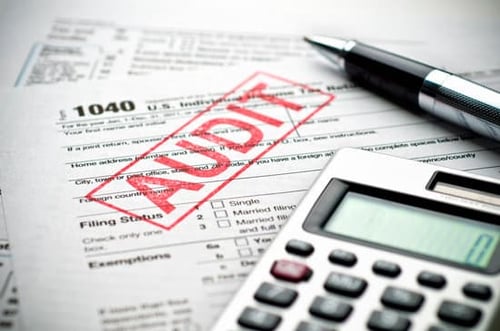Powell Tax Law Blog

13 Common Tax Mistakes to Avoid
No one enjoys doing their taxes, but mistakes on your tax return can be costly.
“An IRS problem is a serious legal matter,” says experienced tax pro Steve Powell who has handled hundreds of tax cases in Texas. “Many times, a tax return contains information that is incorrect or fails to include information beneficial to the taxpayer. It’s crucial to understand common tax mistakes and avoid making them, but if you do make one, then address it as soon as possible. You just need a plan, and most likely you need to work with someone who can quickly move you through the process.”
Here are 13 of the most common tax mistakes people make and how to avoid them:
- Not Reporting All Your Income
- Mistake: Failing to report income from side gigs, investments, gambling winnings, etc. in addition to your regular job.
- Why it happens: People often don't realize they need to report income from all sources, not just their main job.
- Consequences: Unreported income can lead to a tax bill, penalties, and interest if the IRS audits you.
- How to avoid: Keep records of all income during the year and make sure to include it all on your return.
- Taking the Standard Deduction When Itemizing Would Save More
- Mistake: Automatically taking the standard deduction instead of adding up potential itemized deductions.
- Why it happens: The standard deduction is easier, and many don't realize itemizing could save them more.
- Consequences: Overpaying taxes by not claiming all the deductions you're eligible for.
- How to avoid: Add up itemized deductions like mortgage interest, charitable donations, and state/local taxes paid to see if the total exceeds the standard deduction. If so, itemize.
- Mixing Up Personal and Business Expenses
- Mistake: Deducting personal expenses as business expenses for the self-employed.
- Why it happens: Self-employed people often blur the lines between personal and business spending.
- Consequences: Improperly claiming personal expenses can trigger an audit, back taxes, and penalties.
- How to avoid: Keep separate bank accounts and credit cards for business vs personal. Only deduct ordinary and necessary business expenses.
- Missing Out on Valuable Tax Credits
- Mistake: Not claiming tax credits you're eligible for like the Child Tax Credit, Earned Income Tax Credit, education credits, energy efficiency credits, etc.
- Why it happens: Many people don't know about the various tax credits available or assume they won't qualify.
- Consequences: Paying more taxes than necessary by leaving money on the table.
- How to avoid: Use tax prep software or consult a tax professional to make sure you're getting all the credits you deserve. Some are refundable even if you don't owe taxes.
- Math Errors
- Mistake: Simple calculation mistakes and typos.
- Why it happens: Taxes involve a lot of numbers and data entry, making errors easy.
- Consequences: Incorrect tax liability, delayed refund, or requiring an amended return to fix.
- How to avoid: Double-check all numbers and use tax software that does the math for you. E-file for fewer errors.
- Claiming the Wrong Filing Status
- Mistake: Choosing the wrong filing status like Head of Household vs Single.
- Why it happens: Confusion over the qualifications for each status.
- Consequences: Using the wrong status can mean missing out on deductions/credits and paying more tax than required.
- How to avoid: Understand the criteria for each filing status and choose the one that's most advantageous for your situation.
- Not Keeping Sufficient Records
- Mistake: Failing to keep documentation for income, expenses, and deductions claimed.
- Why it happens: Poor organization or assuming it's not necessary.
- Consequences: If audited, inability to substantiate items on your return can mean back taxes and penalties.
- How to avoid: Maintain organized records throughout the year, including receipts, bank/credit card statements, mileage logs, etc.
- Not Contributing to Tax-Advantaged Accounts
- Mistake: Failing to utilize accounts like 401ks, traditional IRAs, HSAs that provide tax benefits.
- Why it happens: Lack of awareness of these accounts or not making them a financial priority.
- Consequences: Missing out on valuable tax deductions and tax-deferred investment growth.
- How to avoid: Take advantage of any employer-sponsored plans like 401ks and HSAs. Consider contributing to a traditional IRA for an additional tax deduction.
- Not Amending Returns for Prior Errors
- Mistake: Not filing an amended return if you later discover a mistake.
- Why it happens: People are reluctant to admit a mistake to the IRS and figure it's better off to be left alone.
- Consequences: Mistakes that result in underpaid tax will accrue penalties and interest over time if not corrected.
- How to avoid: File an amended return right away if you discover an error in your favor or against you.
- Ignoring Estimated Taxes
- Mistake: Self-employed individuals and those with side income not make estimated tax quarterly payments to the IRS.
- Why it happens: Not knowing about estimated taxes or failing to make quarterly payments.
- Consequences: Penalties and interest on underpaid estimated taxes.
- How to avoid: Research estimated tax requirements and make timely quarterly payments if necessary.
- Missing the Deadline
- Mistake: Filing your taxes late.
- Why it happens: Procrastination, waiting for missing documents, or simply forgetting.
- Consequences: The IRS charges penalties and interest on late filings.
- How to avoid: File electronically by the deadline (typically April 15th) or request an extension. Gather all your documents well in advance.
- Ignoring the Alternative Minimum Tax (AMT)
- Mistake: Not calculating or considering AMT if you have a high income or significant deductions.
- Why it happens: Lack of knowledge about AMT and its implications.
- Consequences: You might owe additional taxes if you didn’t account for the AMT.
- How to avoid: Use tax software that calculates AMT or consult a tax professional if your income and deductions suggest you might be subject to AMT.
- Not Hiring a Tax Pro When Needed
- Mistake: Trying to handle complicated tax situations on your own.
- Why it happens: Wanting to save money or thinking it can't be that hard.
- Consequences: Making mistakes due to lack of knowledge, resulting in overpaying, or incurring penalties.
- How to avoid: Invest in a qualified tax preparer if you have a complex tax situation like self-employment, rental properties, or large investment portfolios. They can help you minimize your tax liability while avoiding errors.
By being aware of these common tax pitfalls, you can save yourself money, stress, and problems with the IRS.
The best defense against mistakes is being proactive, educated, and organized about your taxes throughout the year.
If you have made one of these common tax mistakes, reach out to Powell Tax Law today for a free and confidential consultation on solving your IRS problem.







